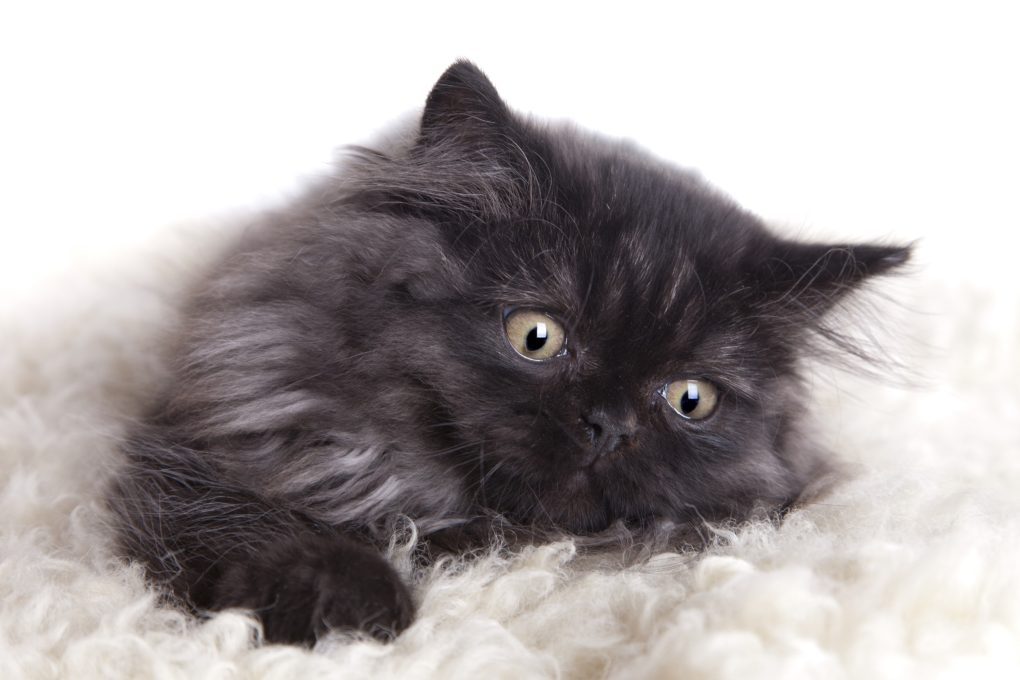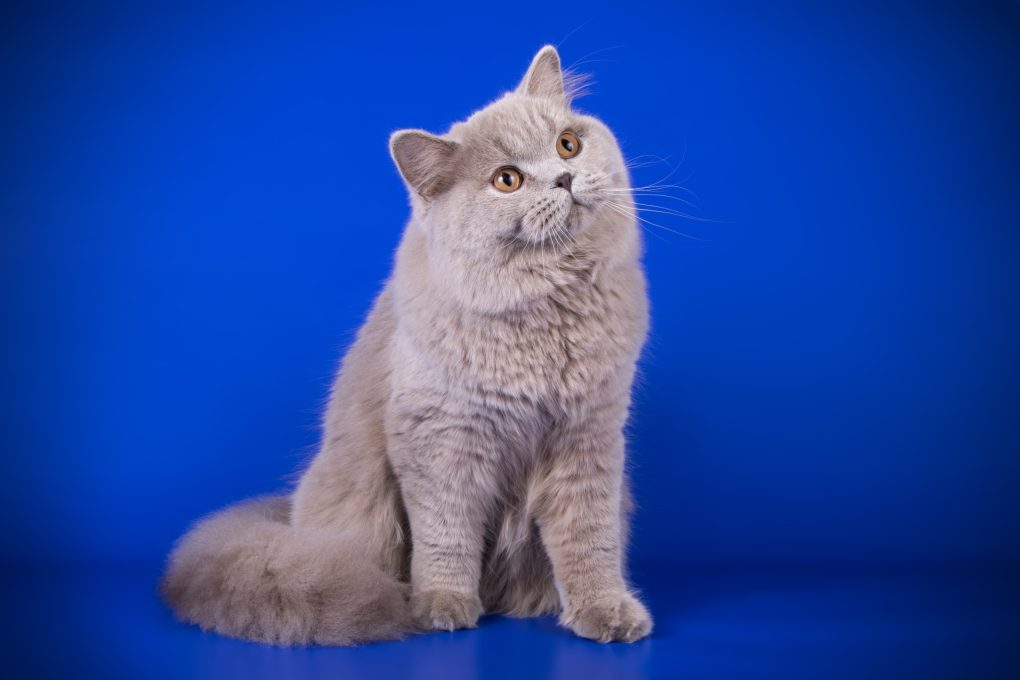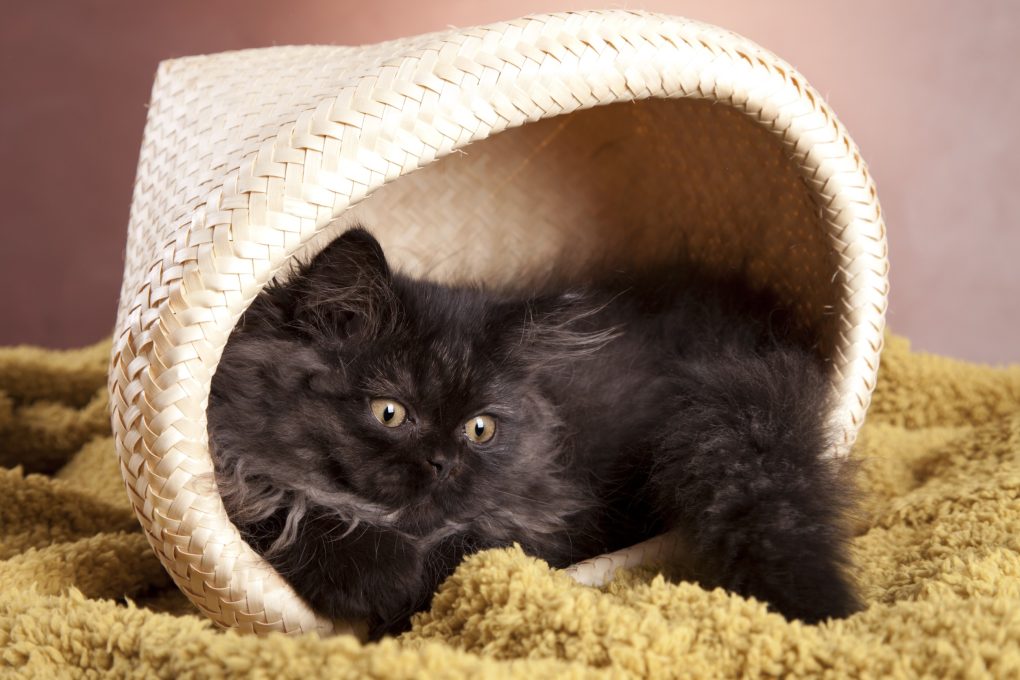How Long Do British Longhair Cats Live: Factors Affecting Your Cat’s Lifespan
According to Vio Vet, British Longhair cats have an average lifespan of 18 to 20 years, although some may live longer with proper care and nutrition. It’s important to note that various factors, including genetics, diet, exercise, and overall health, can influence a cat’s lifespan. To help ensure that your British Longhair cat lives a long life, it’s essential to provide them with regular veterinary checkups and a balanced and nutritious diet.
Table of Contents
Factors Affecting British Longhair Lifespan
Genetics and Ancestry
Genetics is one of the most significant factors that can influence the lifespan of a British Longhair cat. Like humans, a cat’s genetic makeup can predispose them to specific health conditions, some of which may shorten its lifespan.


For example, British Longhair cats may be prone to specific inherited health problems such as hypertrophic cardiomyopathy (a type of heart disease), polycystic kidney disease (a condition in which cysts form in the kidneys), and hip dysplasia (a condition that affects the hip joint). These health conditions can significantly impact a cat’s quality of life and may lead to premature death if not properly managed.
Lifestyle
The lifestyle you provide for your British Longhair cat can also significantly affect its lifespan. Therefore, a calm and stress-free environment is essential for maintaining your cat’s health and well-being.
Cats thrive in a routine, so try to keep a consistent schedule for feeding, playtime, and grooming. This can help reduce stress and anxiety, harming your cat’s health and lifespan.
Additionally, providing your British Longhair cat with a safe and stimulating environment can help prevent accidents and injuries that can shorten its lifespan. Ensure your cat has plenty of opportunities to explore and play in a safe and secure space.
Diet and Nutrition
Diet and nutrition are essential factors in determining the lifespan of a British Longhair cat. Feeding your cat a balanced and nutritious diet can help prevent various health problems and improve their overall health and well-being.
To ensure that your British Longhair cat is getting the proper nutrients, it’s recommended to feed them high-quality commercial cat food that meets their nutritional needs. Look for cat foods that contain high-quality protein, healthy fats, and essential vitamins and minerals. Avoid foods that contain fillers or artificial preservatives.
It’s also essential to ensure that your cat is getting enough water. Dehydration can lead to health problems such as kidney disease, which can shorten the cat’s lifespan. Ensure your cat has access to clean and fresh water at all times, and consider feeding them wet food or adding water to their dry food to help keep them hydrated.
Housing
Appropriate housing for your British Longhair cat can also significantly impact its lifespan. A safe and comfortable living environment can help prevent accidents, reduce stress, and promote overall health and well-being.
Ensure your cat has access to a comfortable, clean, well-ventilated living space free from potential hazards. The living space should be appropriate for your cat’s size and activity level, with plenty of room to move around, play, and relax.
You provide your cat with a comfortable and appropriate sleeping area, such as a cozy cat bed or a designated sleeping space. This can help promote healthy sleep habits necessary for overall health and well-being.
Exercise


Regular exercise is also crucial for maintaining the health and longevity of British Longhair cats. While these cats may have a more relaxed and laid-back demeanor than some other breeds, it’s still important to encourage them to engage in regular physical activity to help keep them healthy and happy.
Encourage your cat to play and be active by providing toys and activities they enjoy, such as interactive toys or scratching posts. Regular playtime and exercise can help prevent obesity, a significant risk factor for various health problems that can shorten a cat’s lifespan.
It’s also essential to provide your British Longhair cat with enough space to move around and explore. Make sure that their living environment is safe and stimulating, with plenty of opportunities for them to climb, jump, and play.
Health Risks of British Longhair
Obesity
- Diabetes: Obese cats are at a higher risk of developing diabetes mellitus, which can cause various health problems, including weight loss, lethargy, increased thirst and urination, and poor coat condition.
- Joint Problems: The extra weight that an obese cat carries can put additional stress on their joints, leading to arthritis or other joint problems.
- Heart Disease: Obesity in cats can also increase the risk of heart disease and high blood pressure, leading to heart failure and other serious health problems.
- Respiratory Problems: Obese cats may also be more prone to respiratory problems such as asthma, which can be exacerbated by excess weight.
- Shortened Lifespan: Obese cats may have a shorter lifespan than cats who maintain a healthy weight.
Dental Problems
- Periodontal Disease: A bacterial infection of the gums and tissues surrounding the teeth. Periodontal disease can lead to tooth loss, painful abscesses, and even systemic infections that can affect the heart and other organs.
- Tooth Resorption: This is a painful condition where the tooth is broken down and absorbed by the body. It can lead to tooth loss and significant pain for the cat.
- Gingivitis is inflammation of the gums that can lead to redness, swelling, and bleeding. If left untreated, it can progress to periodontal disease.
- Bad Breath: Bad breath is often a sign of dental problems in cats, especially if it is persistent and not easily remedied by brushing or dental chews.
Urinary Tract Issues
- Urinary Tract Infections (UTIs): This bacterial infection of the urinary tract can cause pain, discomfort, and frequent urination. UTIs are more common in female cats than in males.
- Feline Lower Urinary Tract Disease (FLUTD): This condition can cause a range of urinary tract symptoms in cats, including frequent urination, difficulty urinating, blood in the urine, and urinary accidents outside of the litter box. FLUTD can have a variety of causes, including stress, diet, and other health conditions.
- Urinary Stones: These mineral deposits can form in the bladder or urinary tract, causing pain and discomfort. Some cats are more prone to developing urinary stones than others.
Hypertrophic Cardiomyopathy (HCM)
Hypertrophic cardiomyopathy (HCM) is a common heart disease in cats, including British Longhairs. It is a condition where the heart muscles thicken and may result in the heart having difficulty pumping blood. The cause of HCM is often genetic, and it can lead to heart failure or sudden death.


The symptoms of HCM in cats may not be apparent in the early stages of the disease. Still, as the condition progresses, cats may experience difficulty breathing, lethargy, coughing, and sudden collapse. If you suspect your British Longhair cat has HCM or any heart-related issues, taking them to a veterinarian for a checkup and treatment is essential.
To prevent HCM, getting your British Longhair cat from a breeder who regularly screens their cats for the condition is advisable. Additionally, routine visits to the veterinarian for checkups and early detection of potential issues can help prevent the development of HCM or manage the condition in its early stages.
Hypertrophic Cardiomyopathy (HCM)
Polycystic Kidney Disease (PKD) is a genetic condition affecting cats’ kidneys, including British Longhairs. It is characterized by the formation of multiple fluid-filled cysts in the kidneys, which can lead to kidney failure and other related complications.
PKD is an inherited disease; therefore, getting your British Longhair cat from a breeder who routinely screens their cats for PKD is advisable. If a cat inherits PKD, the symptoms may not appear until later. The symptoms of PKD may include weight loss, vomiting, frequent urination, and increased thirst.
Unfortunately, there is no cure for PKD in cats, and the treatment usually focuses on managing the symptoms and slowing down the progression of the disease. Therefore, ensuring that your British Longhair cat receives regular checkups with a veterinarian to detect and manage any potential kidney-related issues is essential.
